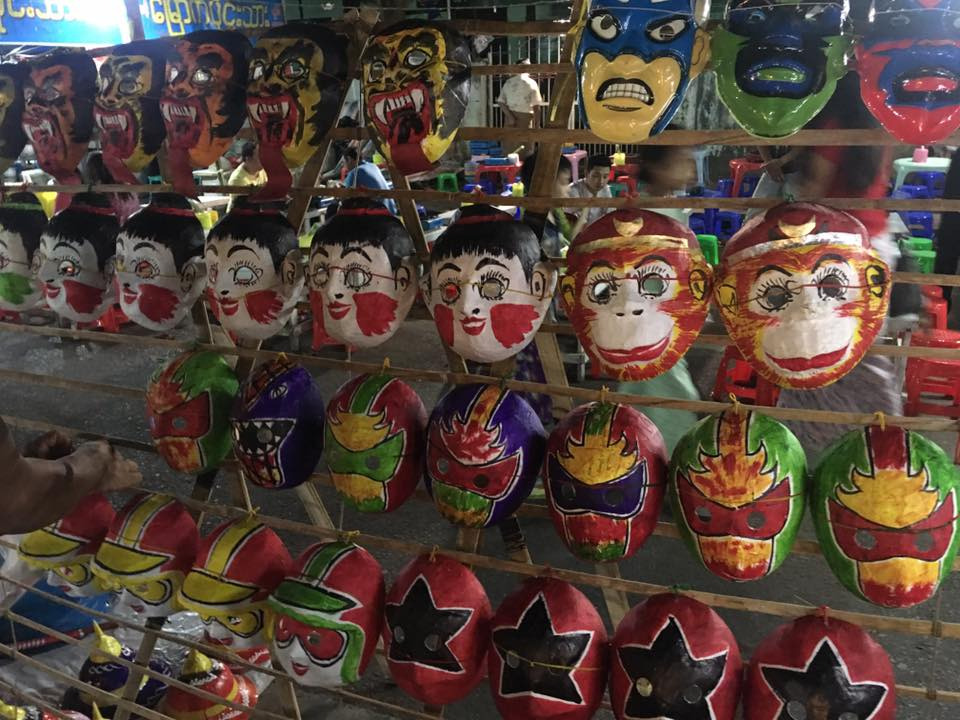
Who is "Burmese" ? Saturday, 22 September 2012 11:19 Nay Thwin
“Rohingya” is not officially an ethnicity or tribe in Burma despite the fact that the community has been living in the Rakhine state in western Burma for years.
The area is now under a state of emergency following deadly clashes between the Rakhine Buddhists and Rohingya Muslims.
Burma denies its security forces are responsible for human rights abuses but journalists are denied access to the area.
The International community has condemned the ongoing violence and the European Union is now calling on the Burmese government to grant citizenship to the Rohingyas who have been living in the country for generations.
Nay Thwin in Chiang Mai has the details.
Whenever Aung San Suu Kyi goes these days she is being made to answer questions about the Rohingya issue.
During a press conference in Washington one of the first questions was: ‗should the Rohingya be giving citizenship?
―In the long term, citizenship laws come into it. We have to know who are
citizens of Burma, in accordance with our citizenship law. On the other hand we also have to examine our citizenship laws to find out if they are in line with international standards and with basic human rights requirements. So its not just citizen ship laws, talking about rule of law, we're just talking about rule of law meaning to say rule of just laws, citizen ship laws laws to do with crimes, it all started with a crime.‖
Over the last few weeks, a series of demonstration against the Rohingyas have been taking place in the capital Rangoon and Mandalay.
Hundreds of Buddhist monks took to streets carrying banners saying: "Save your motherland by supporting the president".
What they are supporting is the Presidents strong stance that the Rohingyas are NOT Burmese.
In July President Thein Sein suggested to the visiting UNHCR chief Antonio Guterres that Burma was ready to handover all Rohingya to any country willing to take them.
The latest violence erupted in June after a Rakhine Buddhist woman was raped and murdered by a group of Muslim men.
The following revenge killings escalated into communal conflict that left nearly ninety people dead and thousands homeless.
Human Rights organizations have blamed Burma for a "discriminatory and arbitrary response by security forces" against Muslims.
And now the European Parliament is calling on the Burmese government to amend its controversial 1982 citizenship law that bars the Rohingya from citizenship.
In Rangoon, participants of a conference titled ―National Identity and Citizenship 21st Century Myanmar‖ are discussing the issue emotionally.
One participant from a Muslim party suggests that 1982 citizenship law should be changed.
―1982 citizenship law leads to racism. The law is a deterrent to building a
national identity for Burma. So it should be amended.‖
One of the panelists in the conference is the Chairman of Rakhine Nationalities Development Party, Dr. Aye Maung.
He insists the law should not be changed.
―There is the explosion of population around us. In Bangladesh there are over 180 millions. And India and China are next to us. In geo-political point of view, we are sandwich between them. One can claim that 1982 law is out of date, but it is our own people or representative of people who decide to change it or not. Outsiders cannot make judgments over the law in our own country. I do not accept it.‖
The 1982 citizenship law precisely defines which ethinic groups and tribes are Burmese and the Rohingya are not on the list.
According to the law, only people who are related to people who lived in Burma before 1823 are considered Burmese. That‘s a year before the first Anglo-Burma War.
Thein Nyut is a prominent lawmaker and the chairman of New National League for Democracy Party.
He agrees with the law.
―The 1982 citizenship law is important because it safeguards our sovereignty and makes sure we do not lose our territory to foreigners. It‘s precisely about protecting our land. I do not want to debate the issue from a humanitarian prespective. But as a Burmese citizen or as a MP, I do not agree with EU proposal to revise the citizenship law. I strongly believe that the 1982 law is useful to solve the current crisis.‖
The U.N. estimates that 800,000 Rohingya live in Burma. The nations population is 60 million.
It is believed that there was significant migration from neighboring countries during the British colonial era and due to corrupt border officers after independence.
Last month, President Thein Sein formed a Commission to investigate the root causes of the recent violence and to plan how to create harmony in the troubled region.
Ko Ko Gyi is one of the commissioners. He has just returned from a week long fact finding mission. He says that people are arriving illegally to the area all the time.
―In the past, the situation was even worse. Still there have been some cases in these recent year. Not that much like in the past but there is such people migration from outside the country.‖
Rohingyas are viewed but the state as ―illegal immigrants‖ from Bangladesh, but Bangladesh denies this claim—leaving the Rohingyas stateless.
Back at the ―National Identity Conference‖ in Burma moderator, U Tin Htut Oo believes that the many there is no need for Burmese Buddhist to worry about their identity being lost.
―Geographically Burma is located between big countries and has been for many thousand years, but we‘d never disappeared. It is because we already have our national identity. We have our own culture so that we can stand tall with dignity. And in Burma, one can easily find churches, mosques, Buddhist monasterys and Hindu temples in the same street – thatis a very rare sight in other countries. So I may be very optimistic but I think Burma can be a role model in this world of crisis.‖
Edit this block to edit the article content or add new blocks...
Post a comment